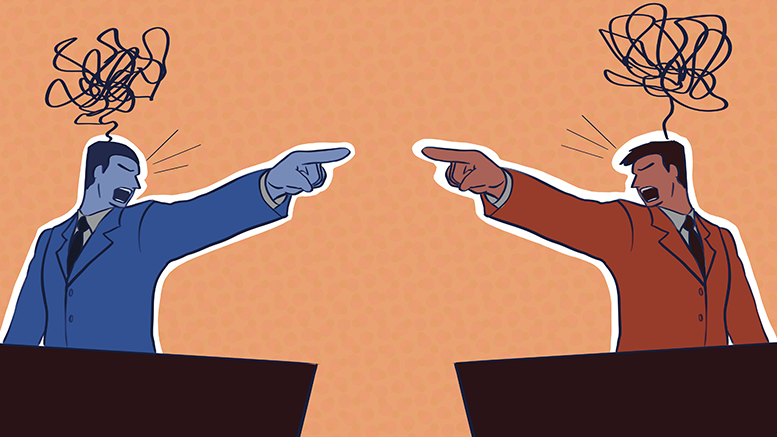I felt entertained and agitated watching the U.S. presidential debate on Sept. 10. Seeing my preferred candidate, Kamala Harris, blow Donald Trump out of the water was gratifying. But it was not a debate I wanted from world leaders — it was more like a vaguely political sparring match designed for viral clips and sound bites. My TikTok feed reflects this reality.
The debates we know today have strayed far from their roots. Debate originates in ancient cultural practices, from ancient Greece to classical Chinese and Indian philosophy, to name a few. The purpose of this esteemed practice was to uncover truth and foster understanding between opposing viewpoints.
However, even in ancient Greece, not all debates served this noble purpose. Philosophers like Plato criticized the sophists — skilled orators — who prioritized persuasion and spectacle over truth, a tendency that is clearly reflected in today’s political debates.
The goal understood throughout the long history of the practice of dialectic is to create change through the process of reasoning. However, in the modern era, the nature of debate has changed dramatically.
It no longer aligns with the history of dialectic. Instead, it has become a sport and an attention-seeking endeavour, especially with the rise of social media. Debate has evolved into something quite different, a spectacle that prioritizes performance, entertainment and personal gain over thoughtful, truth-seeking dialogue.
Political debate in the United States can be traced back to the historic Lincoln-Douglas debates of 1858, which took place during the Illinois Senate race. These debates were not merely contests for votes. They were profound exchanges of ideas that grappled with the critical issue of the day: slavery and the moral implications of its expansion or cessation. There were seven debates in total. Each debate was three hours long. Beginning with a one-hour speech, then a 90-minute rebuttal and finally, a 30-minute conclusion from the initial speaker.
The Lincoln-Douglas debates followed the spirit of the dialectic in uncovering the truth about morality and creating change.
Although Lincoln lost the Senate seat, his debates on the immorality of slavery helped propel him to the presidency, where he issued the Emancipation Proclamation.
But make no mistake, Lincoln was racist as he subscribed to white supremacy despite believing in the immorality of slavery. Nonetheless, the depth of their discourse reflected the importance of reasoned argumentation and the democratic process.
Fast forward to the first televised U.S. presidential debate between John F. Kennedy and Richard Nixon in 1960, which marked a dramatic shift in political discourse. This event transformed debates into media spectacles, where image and presentation became as crucial.
In today’s political landscape, debates like the one between Kamala Harris and Donald Trump illustrate a further evolution of the trend of spectacle.
These contemporary debates have become platforms for candidates to deliver rehearsed lines and create viral moments, prioritizing performance over meaningful dialectic. This shift reflects how debate as a sport, focused on “winning” over idea exploration, has infiltrated political debates. Candidates now use these televised events to score points, blurring the line between genuine discourse and strategic performance.
This co-opting is especially problematic as it carries all the issues of a win-lose mentality without proper structure and substance. Social media’s impact has also transformed debate into a performance designed for public consumption, using a fractured understanding of debate. From Jubilee’s popular Middle Ground series on YouTube to the TikTok lives that aim to debate a simple topic such as “god is not real” where the host debates the chat and guests. These forms of content bring huge amounts of attention and revenue.
We can no longer be sure when issues are being exploited for personal gain and when citizens aim to have sincere dialogue.
We see the influence of social media in political debates, where candidates strategize for the perfect “clip-able” moment that can fuel their campaign’s media presence.
These viral sound bites dominate post-debate coverage, sometimes more than the policies discussed.
Watching the Harris-Trump debate, I could not shake the feeling that we have lost something essential in the evolution of debate. While it was satisfying to see Harris perform well, it was clear that modern debates have been reduced to little more than performances in a political theatre.
The need for instant gratification and viral moments has overshadowed the pursuit of truth and meaningful change.
Debate, once a tool for creating change through reasoning, has become a battleground in the culture wars, where the only objective is to win publicly.



